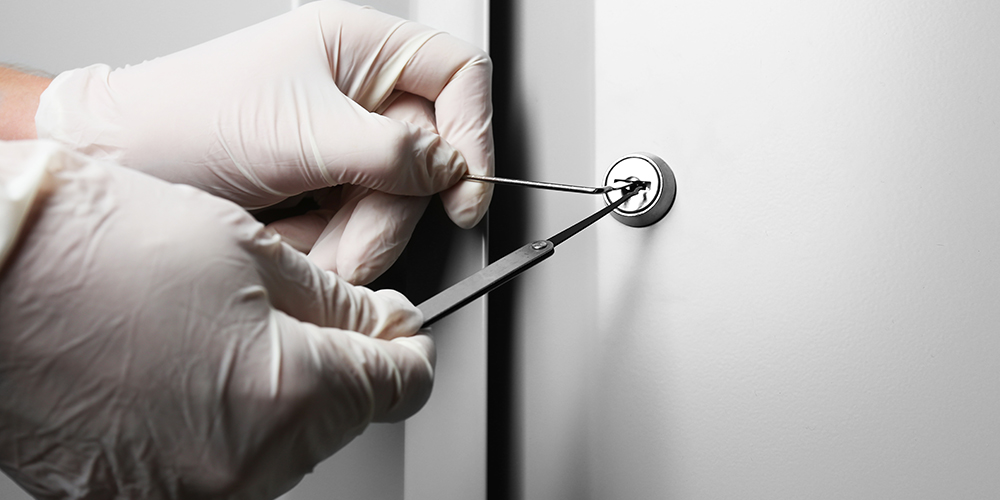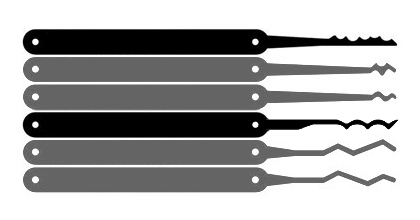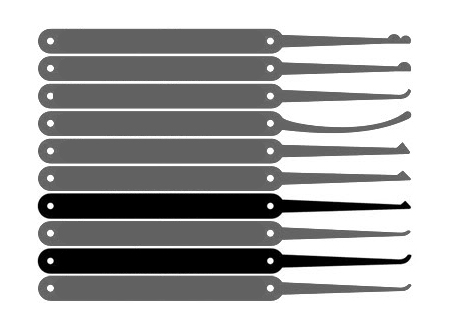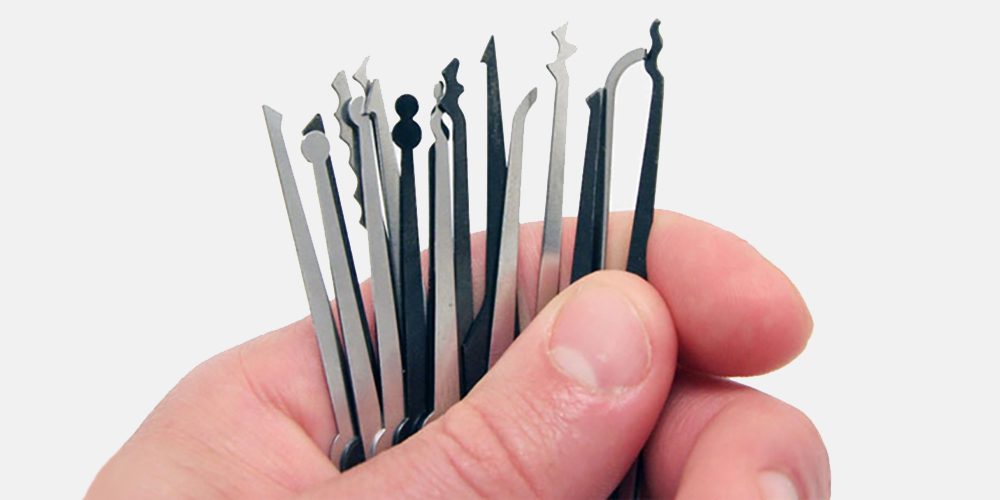Lock Blog
A resource for consumers, locksmiths, and security professionals
A resource for consumers, locksmiths, and security professionals

What is the difference between single pin picking and raking the lock? When do I use it? Is it a crutch? This is a debate for some and a set of honest questions for many locksmiths and lock picking hobbyists. Mainly these are questions posed by beginners that want to make sure they are doing the right thing. Often in life people equate the easy thing with the wrong thing. If something is too simple it could be seen as cheating by one person, and Occam’s Razor (the simplest solution is often the correct one) by another. Is there more to the issue than personal preference? Everyone can have an opinion so let us stick to the facts at hand.

Raking is the use of a lock picking tool that attempts to move multiple pins at once. This method is made for speed and efficiency with low-security locks, and locks with keys that have calm bitting (the pins do not fluctuate between the highest and lowest depths). The most common rakes are the snake, the worm (the snake’s sister rake), the city (or L) rake, and the universally loved Bogota rake. All of these tools are pieces of metal bent in different ways to simulate key grooves (also known as bitting). Even though this method is most successful on low-security locks there are instances when it can achieve quicker results than single pin picking (known colloquially as SPP).
Being able to rake a lock does call into question whether it is worthy of being called a security lock, but very calm bitting on the key can allow security pins to be set very quickly. Raking is mainly a beginner technique but it is used by professionals, even when they may SPP the lock later on. The use of a rake with SPP allows the pins to get a false set. A false set may inform the picker of security pins. Also, a rake might potentially get lucky and open the lock. A simple answer for simple locks and a potential secondary tool on more complex locks.
Pros
Cons

Once again, the lock picking community generally refers to single pin picking as SPP (sometimes modified to SPP’ing or SPP’d to denote verb tense). This method is the tried and true way to overcome any lock. With enough time and practice, any lock can be single pin picked (granted that time may be decades). It is a universal way to open any lock as if you had the key. It may not always be the fastest of methods, but it gets results. Single pin picking is a more advanced skill and requires refinement for every lock that is attacked. It requires the use of several tools so that different keyways can be accessed with enough space to manipulate the pins individually.
Each tool has many variations, but the most common families are the hooks and half diamonds. The hooks allow the user to set the pins by applying vertical pressure, and the half diamonds allow horizontal pushing and pulling to set the pins. This type of individualized attention to each pin makes it easier to detect when a pin has over set (past the shear line), false set (when a pin has caught on the shear line but not set), or even the existence of security pins at all. The time it forces the user to take allows them to feel the feedback from the pin to the pick. This feedback allows the picker to have a more comprehensive understanding of the lock’s internal workings.
Pros
Cons
Lock picking is an art, and some might compare raking to the artistic equivalent of power cords on a guitar. It is the way that most beginners learn to play, and the immediate results that it produces can foster a greater love of the art. Success for anyone learning a skill can inspire further exploration of the craft, but it can also create a feeling of complacency. For many lock pickers, their criticism of raking is that the method is a crutch, which many hobbyists and professionals rely on to the exclusion of single pin picking. Not every lock can be opened with a rake alone, but defenders of raking will say that it is a way of assisting the lock picking process. Raking can be used in conjunction to single pin picking, and it is a good skill to have. The pro-raking argument centers more around the idea that it is a worthwhile skill, and though it may not be a universal remedy it does have merit in the craft.
Single pin picking (or SPP) advocates that are anti-raking, in the musical analogy, would lean towards the classically trained guitarist. The belief is that there is a correct way of doing things that allow for great results as an outcome of discipline. Raking is seen as a bad habit that is allowing the person to be undisciplined. Why do something that is going to create a bad habit? There is a Spanish proverb which reads, “Habits begin as cobwebs yet ripen into chains,” and that is the view of the lock picking purest.
Professional competitive lock picker, Schuyler Towne, has even said in regards to his competitive lock picking that, “One of these days I may need to give up the rakes and retrain myself just using [single pin picking], if I really want to keep up”. The criticism of this argument is that it only applies to the highest level of lock picking. To which the question may be, “What is the use of doing something if you are not always striving to improve, and through improving become the best?” This is the question that creates the schism between the camps. The dichotomy (perhaps a false one) of personal enjoyment, and craft.

There is no simple answer, but each method does serve a function. How well they serve that function will vary depending on your skill. It is true that the top lock pickers in the world do not use rakes, but that is perhaps something to strive for more than it is a code to live by. If locksmithing is your profession you are going to have to use what you are comfortable with, what serves your purposes, and what fits your customer’s needs better. If you are a lock picking hobbyist then follow your bliss, and do what you feel is the most rewarding. If you are in lock sport or you wish to take up competitive lock picking be aware of the pitfalls of raking, but do not let that knowledge keep you from success. There is always time to refine no matter the decision you make now, but just be sure that the habits you are forming do not chain you to the indifference of mediocrity. Be great. Be legal. And be safe.
Category: Buying Guides, Lock Picking, Tools of the Trade